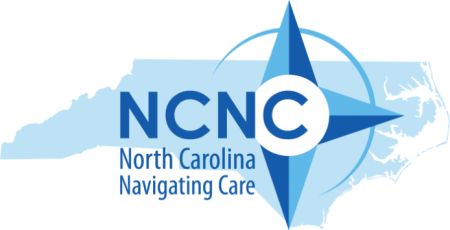
Community Living
Improving living at home and in the community—housing and home modifications, technology, transportation, food and other everyday needs for my child and family.
The neighborhoods and communities we grow up in can have a lifelong impact on us. Community living is not just about where we live, but about how we access and are involved in our communities. You may have concerns and questions about ways to improve living conditions at home and in the community – housing and home modifications, technology, transportation, food and other everyday needs for your child and family.
What is Assistive Technology?
Assistive technology (AT) creates opportunities for children to communicate, learn and participate in a way that would not be possible without these supports. It increases their ability to do many things themselves and empowers children to experience all of life’s opportunities. The Individuals with Disabilities Education Act (IDEA, 2004) defines AT as “any item, piece of equipment, or product system, whether acquired commercially or off the shelf, modified, or customized, that is used to increase, maintain, or improve functional capabilities of a child with a disability.” AT can be used with persons of all ages, starting in infancy through adulthood.
https://www.pacer.org/parent/php/PHP-c212.pdf
Where do I find the Assistive Technology Program?
In NC, the Assistive Technology Program (NCATP) is housed within the Department of Health and Human Services (DHHS). NCATP serves all ages and has Centers across the state:
https://www.ncdhhs.gov/divisions/vocational-rehabilitation-services/north-carolina-assistive-technology-program
How do I know if assistive technology can help my child?
If a child is showing delays in development, parents can ask their child’s doctor or service provider such as a speech-language pathologist, occupational or physical therapist if AT might be helpful. If so, parents can ask for this developmental/educational need to be included in their Individualized Family Service Plan (IFSP) or Individualized Education Plan (IEP) and the appropriate assistive technology can be acquired and used if accepted as part of the plan.
Where can I find examples of assistive technology devices and how they are used?
AT is a broad group of strategies, supports and tools that can range from no-tech (e.g., pictures or objects) to low-tech (e,g., switch operated toys) to high tech, sophisticated devices. It’s important that you work with a professional who is knowledgeable in AT to choose the right AT strategy for your child. Professionals who are knowledgeable in AT can include but are not limited to your primary care or specialty provider, speech therapist or occupational therapists.
https://www.pacer.org/stc/pubs/STC-29.pdf
How do I get help with paying for assistive technology?
If a child needs assistive technology, it is often helpful to talk with a doctor to help determine if the tool is ‘medically necessary’. For other needs such as education, the school district may provide some supports or can help families seek funding through private insurance or Medicaid. Other options for funding:
https://www.ncdhhs.gov/divisions/vocational-rehabilitation-services/north-carolina-assistive-technology-program/assistive
How Can We Meet Transportation Needs for My Child?
Medicaid is required to assure transportation to medical appointments for all eligible individuals who need and request assistance with transportation. Transportation will be available if the recipient receives a Medicaid covered service provided by a qualified Medicaid provider (enrolled as a NC Medicaid provider). Medicaid covers the cost of emergency medical transportation eligible individuals. Medicaid also covers “non-emergency medical transportation” to access community and medically necessary services and appointments.
Other types of transportation related services and resources are available for families who do not have Medicaid or to cover transportation expenses that may not be covered by Medicaid. Here is a list of resources that are available for Medicaid and non-Medicaid clients:
Medicaid Transportation
https://www.cms.gov/medicare-medicaid-coordination/fraud-prevention/medicaid-integrity-education/downloads/nemt-factsheet.pdf
NCDHHS Transportation Providers: (list by county)
https://www.ncdhhs.gov/documents/transportation-providers
211 website offers a quick lookup option. Enter the following link into your browser, put your city in the lookup to find Medicaid approved providers and additional options that serve your area.
https://nc211.org
Easter Seals can assist in finding accessible transportation
https://www.easterseals.com/our-programs/transportation.html
First in Families NC can assist with transporation needs, car repairs and other services
http://fifnc.org/
NC Assistive Technology (vehicle adaptations)
https://www.ncdhhs.gov/divisions/vocational-rehabilitation-services/north-carolina-assistive-technology-program
Lutheran Services in the Carolinas – assistance offered is designed to work in conjunction with existing low income and/or government programs. Transportation and other daily needs included.
https://www.needhelppayingbills.com/html/lutheran_family_services_in_th.html
NC Child Passenger Safety – includes install car seats properly, transition to different car seats as child grows, etc.
https://www.ncdot.gov/initiatives-policies/safety/child-passenger-safety/Pages/default.aspx
Family Support Program – Online resources include transportation resources by county and region in NC
http://fsp.unc.edu/node/102
Public School Transportation
Children who have special needs and have an Individualized Education Plan (IEP) or 504 plan may receive special transportation based on their transportation needs. Decisions regarding transportation must be decided by an IEP Team. The special education staff or the principal of your child’s school would be the first contact for requesting an IEP meeting.
https://www.dpi.nc.gov/districts-schools/district-operations/school-transportation
http://www.ncbussafety.org/SpecialNeeds.html
http://www.ncbussafety.org/SafetyLessons/index.html
https://www.ncdot.gov/initiatives-policies/safety/lets-go-nc/Pages/school-bus-safety.aspx
Other Transportation Assistance
If you need assistance accessing public school transportation or help advocating for transportation services, the Exceptional Children’s Assistance Center, Disability Rights North Carolina, the Alliance of Disability Advocates, and Duke Law Center may be helpful.
https://www.ecac-parentcenter.org/
https://adanc.org/wp-content/uploads/2018/08/ADA-and-Public-Places.pdf
Alliance of Disability Advocates – https://adanc.org/
Duke Law Center – https://web.law.duke.edu/childedlaw/special-education-nc/
Where can I get help with improving our housing or making home adaptations (wheelchair ramps, fence, locks, bathroom adaptations, van adaptation, etc.)?
If you need financial assistance for home expenses or renovations (fences, wheelchair ramps, bathroom adaptations etc.), there are many resources to help equip your home or find a home that helps a person be as independent as possible at home.
https://nccare360.org/resources
https://homemods.org/national-directory/#state_directory
http://www.snrproject.com/Resource/Links/NORTH%20CAROLINA
